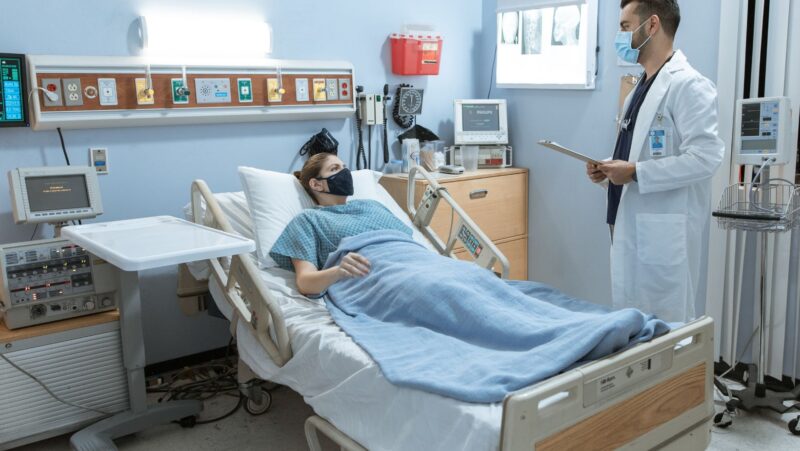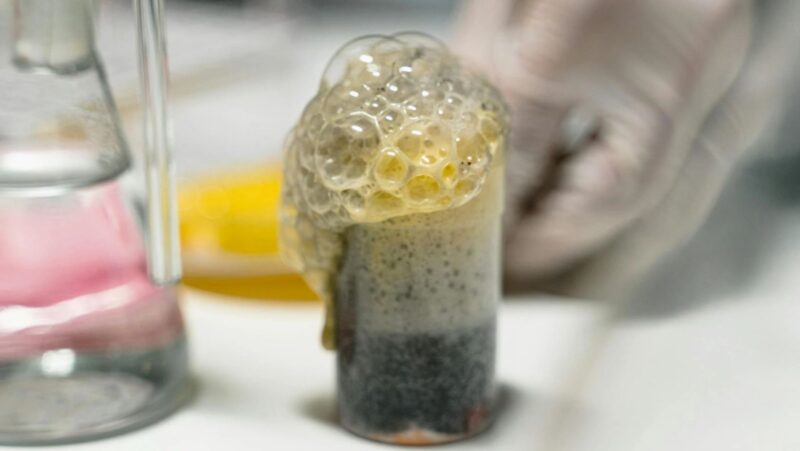
A health science associate’s degree opens doors to numerous rewarding career opportunities in healthcare. This versatile qualification equips graduates with fundamental knowledge in anatomy, medical terminology, and patient care – making them valuable assets in various medical settings.
Students who earn this degree can pursue roles as medical assistants, pharmacy technicians, dental hygienists, or medical lab technicians. With the healthcare industry experiencing rapid growth and an increasing demand for skilled professionals, graduates find themselves well-positioned for stable employment and competitive salaries. The U.S. Bureau of Labor Statistics projects continued expansion in healthcare-related jobs through 2030, making it an excellent time to enter this field.
What Jobs can you get with a Health Science Associate’s Degree
A health science associate’s degree combines foundational healthcare knowledge with practical skills training. Students learn essential medical concepts through classroom instruction and hands-on laboratory experiences.
Core Skills and Knowledge Gained
Health science programs equip students with technical proficiencies in multiple healthcare areas:
- Medical terminology for accurate communication in healthcare settings
- Anatomy fundamentals covering major body systems like cardiovascular respiratory
- Basic patient care procedures including vital signs monitoring blood pressure checks
- Laboratory techniques for specimen collection processing
- Healthcare technology operation including electronic health records systems
- Professional ethics compliance with HIPAA regulations
- Basic pharmacology principles medication administration
- Clinical documentation patient record management
Program Duration and Requirements
The typical completion timeline follows a structured format:
Program Length:
| Component | Duration |
|---|---|
| Full-time Study | 2 years |
| Part-time Study | 3-4 years |
| Credit Hours | 60-70 credits |
- High school diploma or GED equivalent
- Minimum GPA of 2.0-2.5
- Basic math science prerequisites
- English language proficiency
- Background check clearance
- Updated immunization records
- CPR certification
- Supervised clinical rotations (100-200 hours)
- Laboratory practice sessions
- Health screening documentation
- Professional liability insurance
- Healthcare facility orientations
Clinical Healthcare Positions
Clinical healthcare positions offer direct patient care opportunities for health science associate’s degree graduates in medical facilities hospitals clinics. These roles combine technical skills with patient interaction responsibilities.
Medical Assistant Opportunities
Medical assistants perform essential clinical tasks supporting healthcare providers:
- Take patient vital signs blood pressure heart rate temperature
- Prepare examination rooms sterilize medical equipment
- Assist physicians during examinations procedures
- Collect process laboratory specimens
- Administer medications injections under supervision
- Update maintain electronic health records
- Schedule patient appointments coordinate care
| Medical Assistant Statistics | Data |
|---|---|
| Median Annual Salary (2022) | $38,270 |
| Job Growth (2022-2032) | 14% |
| Entry-Level Education | Associate’s Degree |
| Number of Jobs (2022) | 775,800 |
- Monitor patient vital signs document changes
- Assist with daily living activities bathing feeding mobility
- Collect specimens perform basic diagnostic tests
- Change dressings assist with wound care
- Transport patients between hospital departments
- Maintain clean sanitary patient environments
- Report patient status changes to nursing staff
| PCT Employment Data | Statistics |
|---|---|
| Average Hourly Pay | $17.25 |
| Projected Growth | 8% |
| Required Clinical Hours | 120-160 |
| Certification Type | NHA CPCT/A |
Administrative Healthcare Careers
Administrative healthcare careers offer stable employment opportunities for health science associate’s degree holders in medical facilities nationwide. These positions combine healthcare knowledge with organizational skills to support medical operations.
Medical Records Specialist
Medical records specialists manage patient health information in electronic health record (EHR) systems. They organize medical histories, verify documentation accuracy, maintain patient confidentiality according to HIPAA regulations, assign clinical codes for insurance reimbursement. The median annual salary for medical records specialists is $46,660, with a 7% job growth rate projected through 2032. Common work settings include:
- Hospitals
- Physicians’ offices
- Outpatient care centers
- Insurance companies
- Healthcare consulting firms
- Managing electronic health records
- Coordinating patient referrals
- Processing medical billing
- Supervising office staff
- Maintaining compliance documentation
- Organizing facility schedules
- Implementing office procedures
| Position | Median Annual Salary | Job Growth Rate (2022-2032) |
|---|---|---|
| Medical Records Specialist | $46,660 | 7% |
| Healthcare Office Coordinator | $44,740 | 9% |
Laboratory and Technical Roles
Laboratory and technical positions form a crucial segment of healthcare career opportunities for health science associate’s degree holders. These roles combine scientific knowledge with practical skills in medical laboratory settings.
Laboratory Technician Positions
Medical laboratory technicians perform essential diagnostic tests on patient specimens in clinical laboratories. Their responsibilities include:
- Operating sophisticated laboratory equipment like microscopes centrifuges analyzers
- Processing blood urine tissue samples for testing
- Recording test results in laboratory information systems
- Maintaining sterile work environments following safety protocols
- Performing quality control procedures on testing equipment
The median annual salary for medical laboratory technicians is $57,380, with a projected job growth rate of 7% through 2032.
| Position | Median Salary | Growth Rate (2022-2032) |
|---|---|---|
| Medical Lab Technician | $57,380 | 7% |
| Phlebotomy Technician | $38,520 | 10% |
| Histology Technician | $54,780 | 5% |
Medical Equipment Technician Jobs
Medical equipment technicians install maintain repair diagnostic imaging systems medical devices. Key responsibilities include:
- Calibrating medical equipment like X-ray machines MRI scanners
- Performing preventive maintenance on healthcare devices
- Testing equipment functionality safety features
- Training healthcare staff on proper equipment operation
- Documenting maintenance repairs in service records
The average annual salary for medical equipment technicians is $55,620, with an employment growth rate of 6% projected through 2032.
| Equipment Type | Certification Required | Average Setup Time |
|---|---|---|
| X-ray Systems | Yes | 4-6 hours |
| MRI Machines | Yes | 8-12 hours |
| Patient Monitors | No | 1-2 hours |
Advancement Opportunities
Health science associate’s degree holders access multiple pathways for career advancement through continuing education specialized certifications. Professional growth opportunities expand with experience certifications additional education.
Bachelor’s Degree Pathways
An associate’s degree in health science transfers directly into bachelor’s degree programs at numerous accredited universities. Credits earned typically fulfill 50-60% of bachelor’s degree requirements in programs like:
- Healthcare Administration
- Health Information Management
- Public Health
- Health Science
- Health Services Management
- Clinical Laboratory Science
- Radiologic Technology
- Nursing (BSN)
Career Growth Potential
Health science professionals advance through multiple career development channels:
Management Roles
- Department supervisor positions after 3-5 years experience
- Clinical team leader roles with additional certifications
- Healthcare facility operations management with bachelor’s degree completion
- Advanced medical coding credentials (CCS CPC)
- Clinical laboratory specialist certifications
- Healthcare quality specialist certification
- Patient care coordinator certification
| Position Level | Average Annual Salary |
|---|---|
| Entry-Level | $38,000-$45,000 |
| Mid-Career (5+ years) | $48,000-$62,000 |
| Senior Level (10+ years) | $65,000-$85,000 |
| Management Level | $75,000-$95,000 |
Salary Expectations and Job Outlook
Health science associate’s degree holders earn competitive salaries across various healthcare roles. The median annual salaries vary by position:
| Healthcare Position | Median Annual Salary | Job Growth Rate (2022-2032) |
|---|---|---|
| Medical Lab Technician | $57,380 | 7% |
| Medical Records Specialist | $46,660 | 7% |
| Healthcare Office Coordinator | $44,740 | 9% |
| Medical Assistant | $38,270 | 14% |
| Phlebotomy Technician | $38,520 | 10% |
| Patient Care Technician | $35,880 | 8% |
Salary growth correlates with experience levels in healthcare positions:
- Entry-Level (0-2 years): $35,000-$42,000
- Mid-Level (3-5 years): $42,000-$55,000
- Experienced (6-9 years): $55,000-$70,000
- Senior Level (10+ years): $70,000-$85,000
Geographic location impacts earning potential:
- Urban Areas: 15-25% higher than national average
- Metropolitan Healthcare Centers: 20-30% higher than rural facilities
- Specialized Medical Facilities: 10-20% premium for technical roles
The U.S. Bureau of Labor Statistics projects healthcare occupation growth at 13% through 2032, creating 2 million new jobs. Key growth drivers include:
- Aging population requiring increased medical services
- Technological advancements in healthcare delivery
- Expansion of outpatient care facilities
- Rising demand for preventive care services
- Implementation of electronic health records systems
- Professional certifications increase earnings by 5-15%
- Management roles offer 25-40% higher compensation
- Specialized technical certifications command 10-20% premium
- Healthcare IT credentials boost salaries by 15-25%
Career Paths in the Healthcare Industry
A health science associate’s degree opens doors to numerous rewarding career paths in the healthcare industry. From clinical roles like medical assistants to technical positions such as laboratory technicians the degree provides essential skills for various healthcare settings. With competitive salaries strong job security and excellent growth potential graduates can build fulfilling careers while making meaningful contributions to patient care.
The combination of practical training professional certifications and advancement opportunities makes this degree an excellent foundation for long-term career success. As healthcare continues to expand the future looks bright for health science associate’s degree holders who’ll find themselves well-positioned for stable employment and career growth in this dynamic field.













